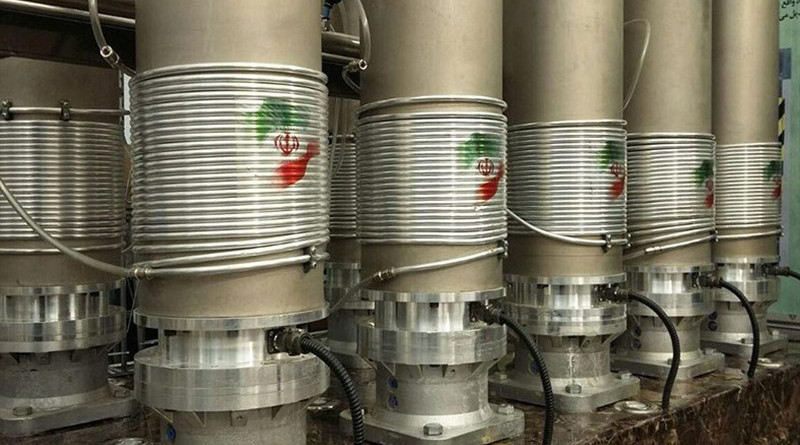IAEA Calls For Iran To Increase Cooperation, End Ban On Inspectors
By RFE RL
(RFE/RL) — The board of governors of the International Atomic Energy Agency (IAEA) on June 5 approved a resolution calling on Iran to step up cooperation with the IAEA and to reconsider its decision to bar the agency’s inspectors.
The resolution, proposed by Britain, France, and Germany, passed 20-2 with 12 abstentions, diplomats said. The two no votes were cast by Russia and China.
Iranian state TV said passage of the resolution “was hasty and unwise, and it will undoubtedly have a detrimental impact on the process of diplomatic engagement and constructive cooperation” between Iran and the opposite parties.
The resolution follows another passed 18 months ago that ordered Iran to immediately respond to questions from IAEA inspectors about the origin of uranium particles found at its undeclared sites.
Although the number of sites under inspection has decreased from three to two, the IAEA says that Iran has not yet given the agency a convincing explanation about the origin of these uranium particles.
Britain, France, and Germany said in a statement to the Board of Governors it should have held Iran accountable for its legal obligations long ago.
The statement emphasizes that “Iran must urgently, fully, and unambiguously cooperate with the agency.”
Since the approval of the previous resolution, the list of issues faced by the IAEA in Iran has grown, and the new resolution requires Iran to resolve these numerous problems.
At the end of last summer, Tehran barred the participation of many senior IAEA experts in the inspection group, which IAEA Director-General Rafael Grossi said was “disproportionate and unprecedented” and a “serious blow” to the UN nuclear watchdog in carrying out its mission.
The board “calls on Iran to reverse its withdrawal of the designations of several experienced agency inspectors which is essential to fully allow the agency to conduct its verification activities in Iran effectively,” the resolution said.
The resolution called the presence of these uranium-enrichment experts in inspections of Iran’s nuclear activities “vital.”
Grossi traveled to Iran last month hoping to break a deadlock on the probe into the uranium particles, address the issue of the barred inspectors, and expand IAEA monitoring to parts of Iran’s nuclear program that were covered under a 2015 deal with major powers.
The deal fell apart after Iran responded to the U.S. withdrawal from the deal in 2018 by abandoning its provisions, including IAEA monitoring of activities such as the production of parts for centrifuges, the machines that enrich uranium.
The agency currently does not know how many Iran has or where they are.

